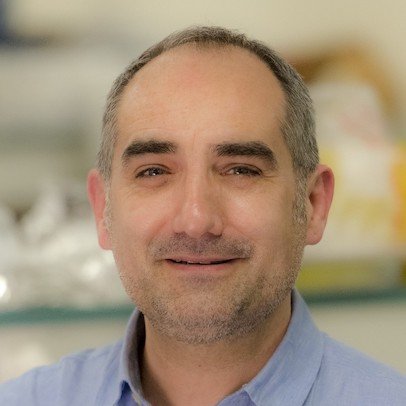Jean-Claude Sirard: Towards a Drug of Bacterial Origin to Fight Pneumonia
Respiratory infections are the third leading cause of mortality worldwide, not helped by the emergence of antibiotic resistance in bacterial pneumonia. Jean-Claude Sirard is working on an innovative therapeutic avenue: the administration of a protein component of bacteria to reinforce natural immunity and the efficacy of antibiotic therapy in response to the infection. The researcher has identified the ideal candidate: flagellin. Thanks to a European contract awarded as part of the Défi santé H2020 program, his aim is to evaluate this approach in humans.

A trained microbiologist, Jean-Claude Sirard* began to develop an interest in flagellin around 20 years ago, during his post-doctoral fellowship: « My research was devoted to host-pathogen interactions. It was an innovative subject, stemming from the very recent discoveries that won the Nobel prize in 2011 and concerned Toll-like receptors (TLRs) present on the surface of host cells. When activated by pathogens, they play a key role in the establishment of innate and adaptive immunity. »
Now the flagellin he is studying interacts with a Toll-like receptor: « This protein makes up the flagella that are found on the surface of many bacterial species, including those most problematic in terms of public health, such as Pseudomonas aeruginosa or Klebsiella pneumoniae. These flagella are filaments that help the bacteria move on the surface of the mucous membranes. And when flagellin binds to the TLR5 receptor of the cells of the mucosal epithelium, it triggers an innate, strong and transient immune reaction, which will stimulate multiple mediators of anti-infectious defenses and adaptive immunity. »
Limit antibiotic resistance
This is what led to the idea of a therapeutic application: would administering flagellin locally during an infection reinforce the immune reaction of the host and improve the response to antibiotic therapy? In order to explore this avenue, the researcher began by obtaining an Atip-Avenir grant in 2004 followed by a second grant, from Europe (FP6), in 2006. « Thanks to this support, we have been able to accurately describe the immune mechanisms involved in the host-flagellin interaction, explains the scientist. It has also enabled us to provide the proof-of-concept of the use of flagellin as an adjunct to antibiotic therapy, on cell and animal models. » Indeed, Sirard and his colleagues have shown that administering flagellin via the respiratory route improves the efficacy of antibiotic therapy in animals with bacterial pneumonia: recovery is more rapid and requires a lower dose of antibiotics than is usually given. By reducing antibiotics doses, this approach also has the benefit of lowering the risk of emergence of antibiotic resistance.
In partnership with various research laboratories in France (Inserm, CEA, Université de Lille and Institut Pasteur de Lille) and Europe (in no fewer than seven countries), Sirard is now working on creating value from this research, with the prospect of a first clinical evaluation in humans. It is for this purpose that the research consortium he leads has obtained European funding of 10 million euros for the FAIR (Flagellin aerosol therapy as an immunomodulatory adjunct to the antibiotic treatment of drug-resistant bacterial pneumonia) project. Encouraging news because « even when there is proof of concept, there is often a type of Death Valley separating projects from therapeutic evaluation because the administrative imperatives linked to human studies are complex and costly ».
Allocated over a 5‑year period, this funding will make it possible to conduct in vivo tests, cell tests, regulatory toxicology tests… all with the aim of performing an initial clinical investigation. « It will also help to finalize the dosage form of the treatment: we have immediately focused our research on an aerosol because it treats the respiratory infection locally, limiting the side effects associated with administration to the whole body. Furthermore, the flagellin that we have developed for this project has a very low level of immunogenicity, in that it does not promote the development of antibodies against it, unlike the original protein », specifies the researcher. It can therefore be administered several times without loss of efficacy. « In parallel to these developments, our course is set in the direction of the first clinical trial: a phase 1 study is envisaged for 2023. »
Note:
* unit 1019 Inserm/CNRS/Université de Lille/Lille regional university hospital/Institut Pasteur de Lille, Center for Infection and Immunity of Lille, Bacteria, Antibiotics and Immunity team
